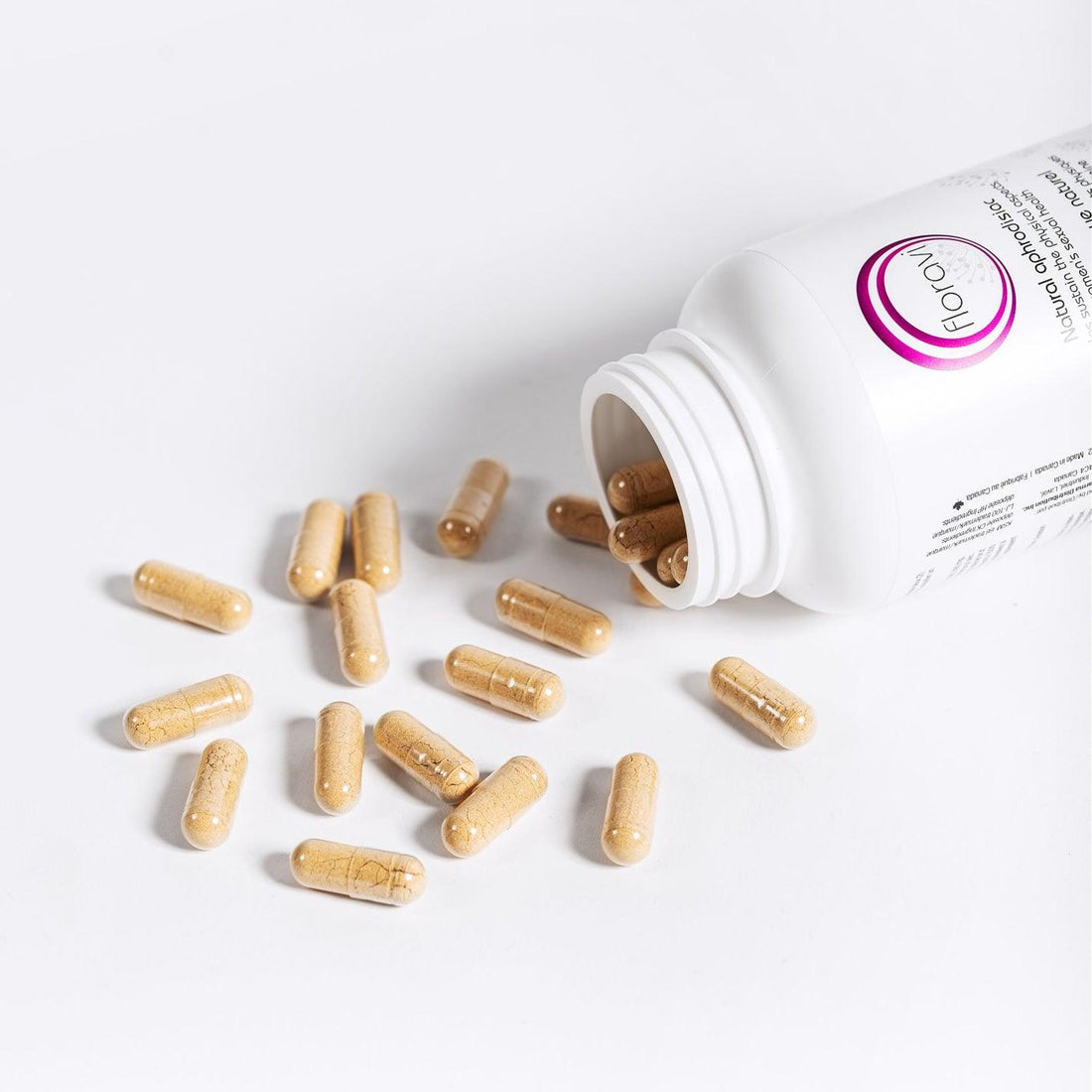
Maintaining optimal sexual health and function is influenced by multiple factors, including hormonal balance, stress levels, and overall well-being. Natural ingredients such as ashwagandha, maca root, and ginseng have been extensively studied for their potential to support sexual health. Below, we break down the scientific evidence behind these powerful botanicals.
Ashwagandha: Stress Reduction and Hormonal Balance
Ashwagandha (Withania somnifera) is widely recognized for its adaptogenic properties; studies have shown that ashwagandha significantly reduces stress and anxiety levels, and lowers serum cortisol levels (U.S. HHS, 2024; Chandrasekhar, Kapoor & Anishetty, 2012). Ashwaganda supplementation has also been demonstrated to improve sleep quality, reduce fatigue, and support mental calmness, contributing to overall vitality (Langade, et al., 2019).
Ashwagandha is reported to have a positive influence on the endocrine system, supporting hormonal balance that is crucial for sexual function (Mishra, Singh, & Dagenais, 2000).
In Men
- Increased Testosterone and Fertility: One study on infertile men found a significant increase in sperm concentration, semen volume, and sperm motility after three months of supplementation; testosterone levels also significantly increased (Ambiye, et al., 2013).
- Enhanced Libido and Performance: Through reducing stress and improving vitality, ashwagandha indirectly supports libido and sexual performance. Another randomized, placebo-controlled study showed increased testosterone and DHEA levels associated with improved sexual function (Chauhan, Srivastava, & Pathak, 2022).
In Women
- Improved Sexual Function: Two studies reported significant improvements in desire, arousal, and satisfaction, attributed to stress reduction, hormone balance, and increased blood flow (Dongre, Langade, & Bhattacharyya, 2015; Ajgaonkar, Jain, & Debnath, 2022).
- Decreased Menopausal Symptoms: ashwagandha root extract can alleviate mild to moderate perimenopausal and menopausal vasomotor and sexual symptoms (Gopal, & al., 2021; Steels, & al., 2018).
Maca Root: Enhancing Libido and Mood
Maca root has been traditionally used as an aphrodisiac, and modern research supports its role in improving sexual function. Two randomized controlled trials (RCTs) demonstrated that maca positively affects sexual desire and function in both menopausal women and adult men while also reducing psychological symptoms such as anxiety and depression (Shin, & al., 2010; Brooks, & al., 2008).
In postmenopausal women seeking natural options for sexual dysfunction, maca has been identified as a promising agent with no reported toxicity or adverse effects, though it is best taken during the daytime to prevent potential sleep disturbances (Dording, & Sangermano, 2018).
Ginseng: Supporting Arousal and Menopausal Symptoms
Ginseng has been investigated for its effects on sexual health, particularly in menopausal women. A meta-analysis of randomized, placebo-controlled trials found that ginseng improved sexual function scores in both pre- and postmenopausal women (Dording, & Sangermano, 2018).
Additionally, studies indicate that ginseng supplementation can significantly improve sexual arousal, reduce hot flashes, and enhance the overall quality of life for menopausal women (Lee, Ang, & Lee, 2022; Lee, & al., 2016).
Conclusion
Scientific research supports the effectiveness of ashwagandha, maca root, and ginseng in promoting sexual health by reducing stress, improving mood, balancing hormones, and enhancing sexual function. Our natural supplements for men and women provide a safe and holistic alternative for individuals seeking to optimize their sexual well-being, notably for women experiencing peri-menopause and menopause.
As with any supplement, individual responses may vary, and consulting a healthcare professional before starting a new regimen is recommended.

